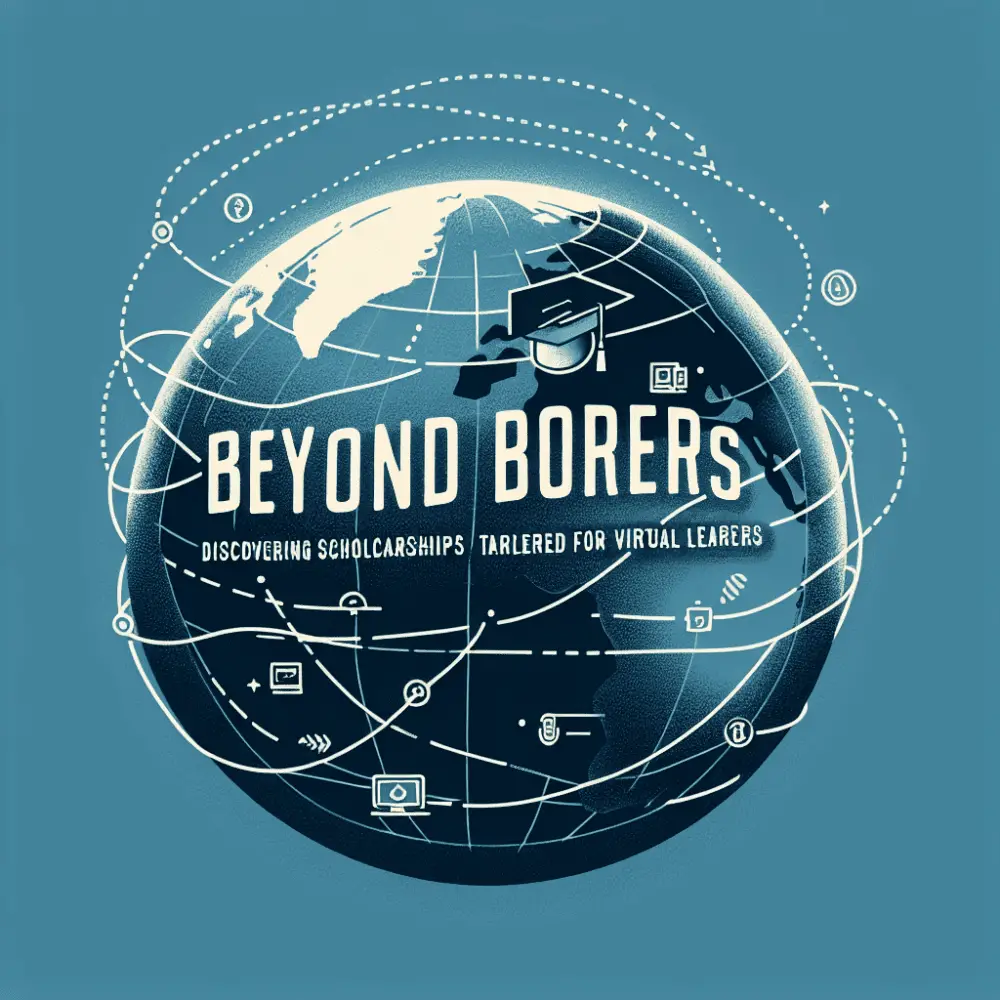
Exploring the Future of Education Funding for Virtual Learners
As the world increasingly embraces digital advancements, the future of education naturally leans towards more virtual and online learning experiences. With more students opting for virtual learning environments, there arises a pressing question: how will education funding evolve to support these learners? The answer lies in the innovative scholarships and funding opportunities being introduced globally. The landscape is shifting, reflecting a focus on accessibility and specialized support for digital learners.
Virtual learning has seen a meteoric rise, primarily driven by the global pandemic and technological globalization. Individuals from different backgrounds can now access quality education without the limitations of geography. However, as the embrace of online platforms becomes more widespread, the financial support structure for these learners needs to catch up. It’s not just about providing traditional scholarships to students attending brick-and-mortar institutions anymore; it’s about tailored funding options that cater specifically to online and virtual learning settings.
One of the key developments in this arena is the introduction of scholarships specifically designed for digital arts and media studies. For instance, the €6,500 Digital Arts and Media Scholarship by Utrecht University in the Netherlands marks a significant advancement. Launched for the year 2025, this scholarship aims to support students who are specifically looking to leverage virtual platforms to pursue their studies. Such tailored scholarships not only highlight the importance of virtual learning but also provide necessary financial support, encouraging students to join these courses without the overhang of financial burdens.
Moreover, specialized fields such as forensic science are also seeing unique funding opportunities, which consider the need for practical, albeit virtual, experiences. The $26,000 Forensic Science Research Fellowship in Iceland, introduced for 2024, is an exemplary initiative that blends the rigor of forensic studies with the flexibility of online education. This fellowship allows virtual learners to conduct high-quality research remotely, thereby proving that virtual platforms can meet academic rigor if adequately funded.
These scholarships symbolize a broader trend towards funding educational opportunities that are not confined by physical location or traditional modes of learning. They demonstrate an understanding that virtual learners’ needs are unique and require different funding approaches compared to traditional ones. As this perspective becomes more common, it’s anticipated that more institutions, both educational and financial, will offer similar opportunities.
Historically, educational funding has favored traditional learning formats, with criteria and structures that prioritize physical attendance and in-person engagement. The evolution of virtual learning requires an overhaul in these structures, demanding a more inclusive and flexible approach to scholarships and funding programs. Essentially, the goal is to democratize education, making it universally accessible regardless of physical constraints or socioeconomic status.
Collaboration between educational institutions and funding bodies is also a crucial factor. By aligning on goals and sharing insights on the efficacy of virtual learning, universities and financial supporters can create more robust systems to support their learners. This collaboration extends to governments and policymakers, who have the responsibility of ensuring that regulations, standards, and support systems are in place to endorse virtual learning environments.
The rise of virtual learning inevitably raises questions about quality assurance and the commitment to provide a comprehensive educational experience. Accreditation and establishing benchmarks for virtual programs are necessary to ensure that they meet the rigorous standards expected in education. Scholarships and funding programs that include provisions for virtual internships or practical experiences go a long way in addressing these concerns.
One of the persistent challenges is digital inclusivity. To maximize the efficacy of virtual learning, educational funding must address the digital divide. This includes providing learners with necessary technology and access to the internet so that the promise of digital learning can be realized in practice. Many initiatives are already underway, aiming to provide digital resources to underserved communities.
In sum, the future of education funding for virtual learners is becoming increasingly diversified and innovative. The introduction of context-specific scholarships like the €6,500 Digital Arts and Media Scholarship and the $26,000 Forensic Science Research Fellowship illustrates how education funding is evolving to keep pace with changing educational modalities. Such initiatives not only pave the way for enhanced access to education but also set the stage for a more equitable learning environment on a global scale.
As virtual learning continues to gain prominence, it is imperative that all stakeholders recognize the unique needs of this growing cohort. By committing to tailored funding strategies and ensuring technological accessibility, the future of virtual education can be as bright and potential-filled as traditional learning avenues. It’s an exciting journey, promising transformative educational experiences for learners around the world.

















